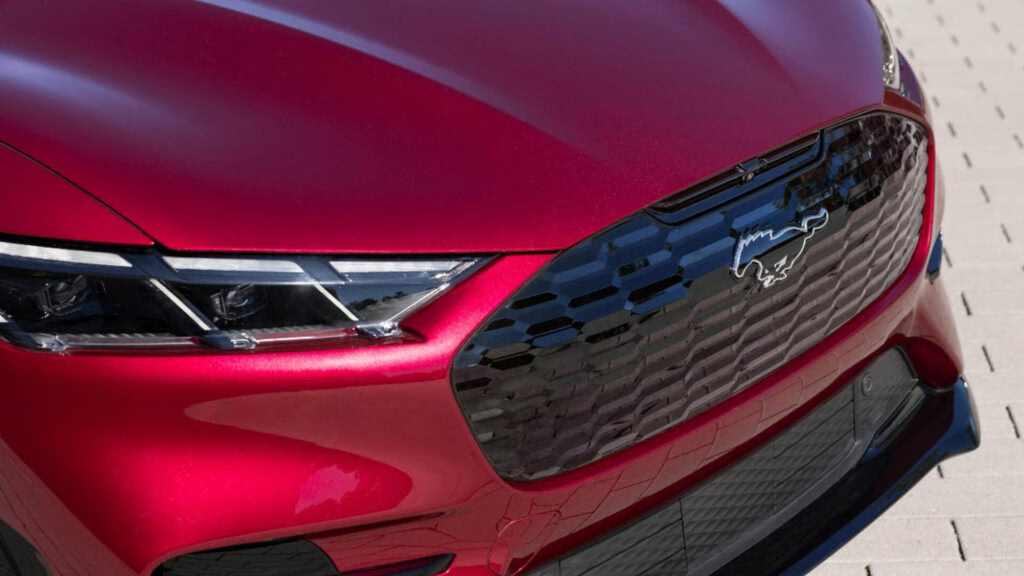Why Is the Ford Mustang Mach-E Being Recalled Again?
If you own a 2021 Ford Mustang Mach-E, you might be feeling a bit of déjà vu. Ford has issued another recall for a handful of these electric crossovers—yes, for the same issue that was supposed to be fixed last year. The problem? Some vehicles didn’t actually get the right software update during the previous recall, leaving a critical braking issue unresolved.
This isn’t just a paperwork mix-up. According to the National Highway Traffic Safety Administration (NHTSA), the original recall was meant to address a glitch in the anti-lock braking system (ABS) calibration. When the ABS software defaulted, it disabled power brake assist and several important safety features. Drivers could still stop, but it required more effort and resulted in longer pedal travel—hardly what you want in a sudden stop.
What Went Wrong With the Previous Repair?
You’d expect a recall fix to be, well, fixed. But in this case, a faulty programming tool at some dealerships meant the correct software wasn’t uploaded to all affected vehicles. Ford’s own investigation, sparked by reports in late 2023, found that only about 84.5% of the recalled Mach-Es actually received the proper update. That left a small but significant number of cars with the same risky braking issue as before.
The technical hiccup is a reminder that even with over-the-air (OTA) updates and modern diagnostics, human error and tool malfunctions can still throw a wrench in the works. For the unlucky owners of these Mach-Es, it means another trip to the dealership is required to finally get the fix that should have happened the first time.
How Does This Issue Affect Driving Safety?
Let’s get real: brakes are not something you want to gamble with. When the ABS calibration defaults, you lose not just power brake assist, but also electronic stability control, traction control, hill start assist, and pre-collision assist. That’s a laundry list of features designed to keep you safe, especially in emergencies or slippery conditions.
Without these systems, drivers experience longer stopping distances and have to press harder on the brake pedal. The NHTSA warns that this increases the risk of a crash, particularly in situations where every split second counts. While Ford reports no known accidents or injuries linked to this specific issue, the potential for danger is clear.
What Should Mustang Mach-E Owners Do Now?
If you’re driving a 2021 Mustang Mach-E and had it serviced for the recall last year, don’t assume you’re in the clear. Ford is reaching out to affected owners, but it’s smart to be proactive. Check your VIN on the NHTSA recall website or contact your local Ford dealer for confirmation. If your vehicle is part of this secondary recall, you’ll need to schedule a visit to have the correct software installed—at no charge, of course.
It’s a hassle, no doubt. But when it comes to critical safety systems, it’s worth the extra effort. And if you’re considering buying a used Mach-E, it’s wise to double-check that all recalls have been properly addressed.
Why Are Recalls Like This Happening More Often?
The auto industry is in the midst of a tech revolution, with more vehicles relying on complex software for everything from braking to infotainment. While over-the-air updates have made it easier to fix issues without a trip to the shop, they’ve also introduced new points of failure. A glitchy update or a misconfigured tool can have real-world consequences.
According to a 2023 report from the Insurance Institute for Highway Safety (IIHS), software-related recalls have risen sharply in the past five years, especially among electric and hybrid vehicles. Automakers are still learning how to manage these new risks, and sometimes, as with the Mach-E, it means a fix for the fix.
What Does This Mean for Ford’s Reputation and EV Reliability?
Ford isn’t alone in facing recall headaches, but repeated issues—especially with high-profile models like the Mustang Mach-E—can erode consumer trust. J.D. Power’s 2024 Vehicle Dependability Study found that software problems are now among the top complaints from EV owners, outpacing traditional mechanical faults.
That said, Ford’s willingness to own up to mistakes and issue follow-up recalls is a positive sign. Transparency and quick action are key to maintaining customer loyalty, even when things go sideways. And the Mach-E remains a strong contender in the electric SUV market, with most owners reporting high satisfaction once issues are resolved.
The Big Takeaway for EV Owners
Recalls can be frustrating, but they’re also a sign that automakers are paying attention and prioritizing safety—even if it means admitting a previous fix didn’t stick. For Mustang Mach-E owners, the lesson is clear: stay informed, follow up on recall notices, and don’t hesitate to ask your dealer tough questions about repairs.
The big takeaway? EV ownership isn’t about perfection—it’s about smarter adjustments. Start with one change this week, and you’ll likely spot the difference by month’s end.

